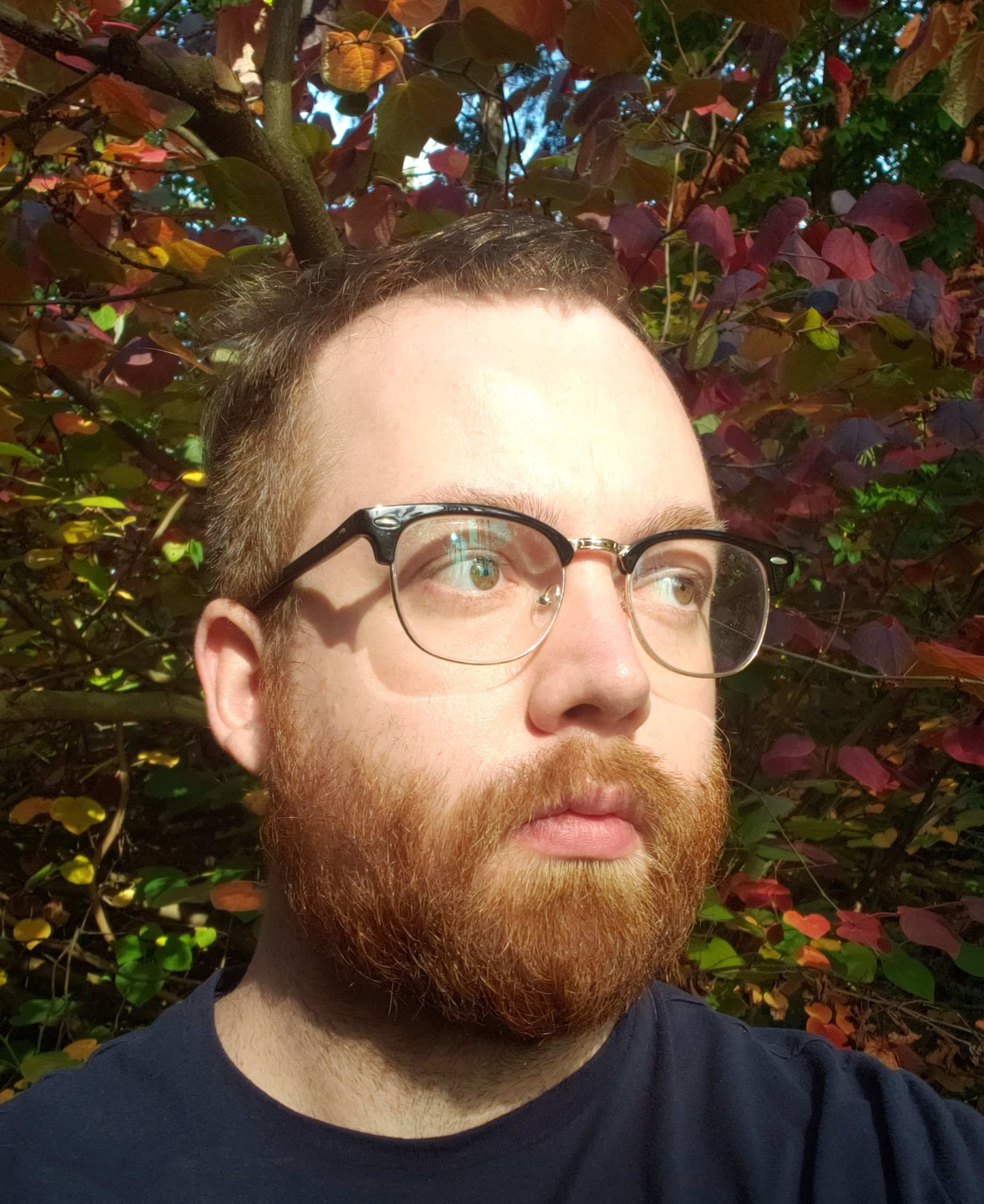Perspectives on the Apocalypse
The Last of Us, Kentucky Route Zero, and NORCO grant us looks at the End Times...and why doom can look different for us all
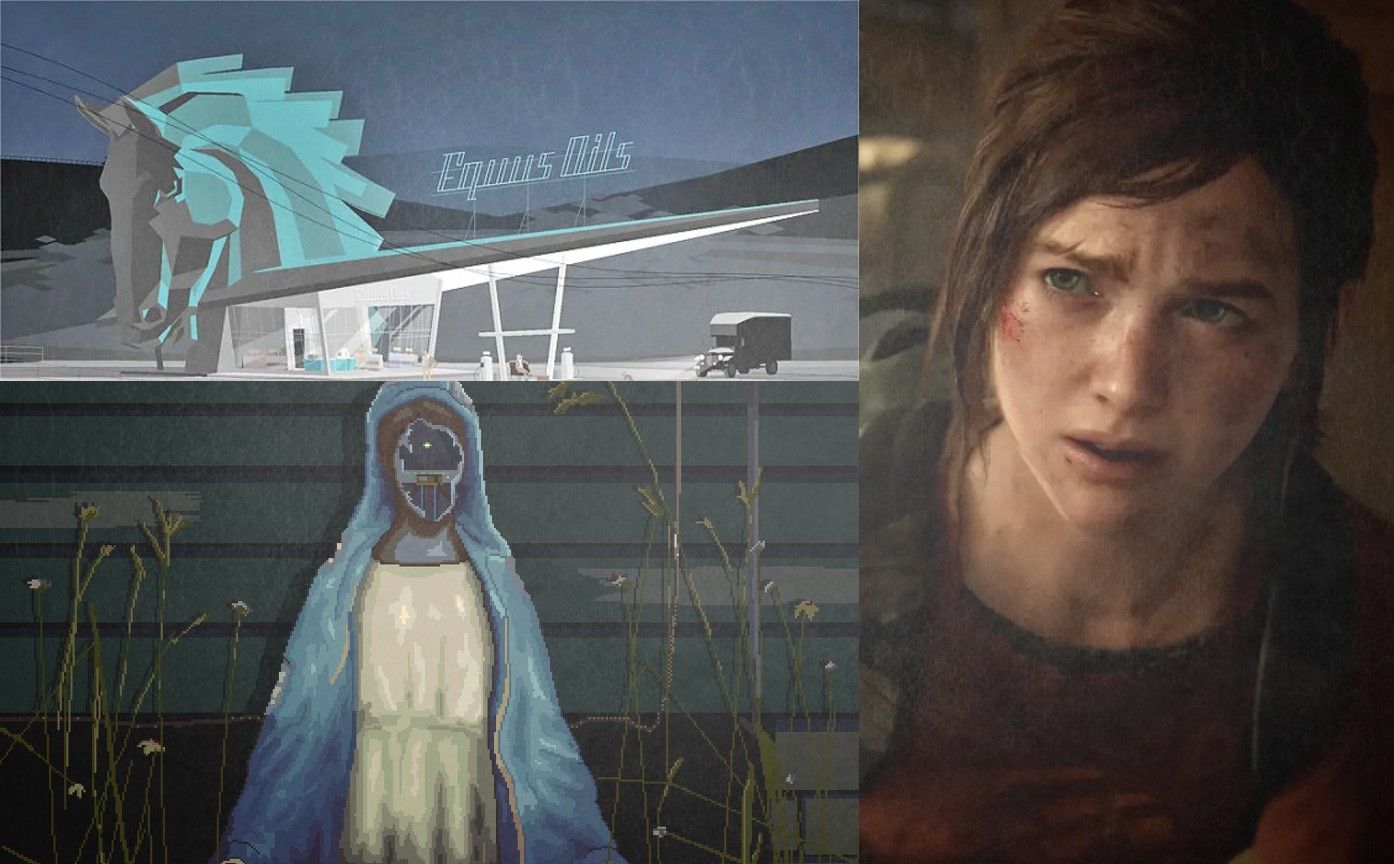
Dreaming up the apocalypse will never stop being in vogue. As we contend with another year of our own real-world pandemic, and the CDC asserts that COVID cases remain low nationwide, we continually turn to fiction that can explain away our miseries, confusion, and pain. Apocalypse fiction is not new—while The Last of Us might have surged in popularity due to the refreshing HBO show, it's a ten-year-old video game. From Outbreak to The Stand to Akira, we have always loved teasing the idea of what might come next. Mass destruction and death are biblical, even when our own epidemic may not carry the more fictionalized signs of how we view the end of the world.

Endure and Survive
Video games like The Last of Us (TLOU), Kentucky Route Zero, and NORCO offer strikingly different views of the apocalypse based on pandemic causes, social influence, politics, timeframe, and more. The narratives in video games often skew towards apocalypse because it allows both the developer and the player to easily imagine a transformed world with new rules; both the familiar and the unexpected can exist at once, creating a refreshing experience that still bears an uncanny resemblance to the world in which we live.
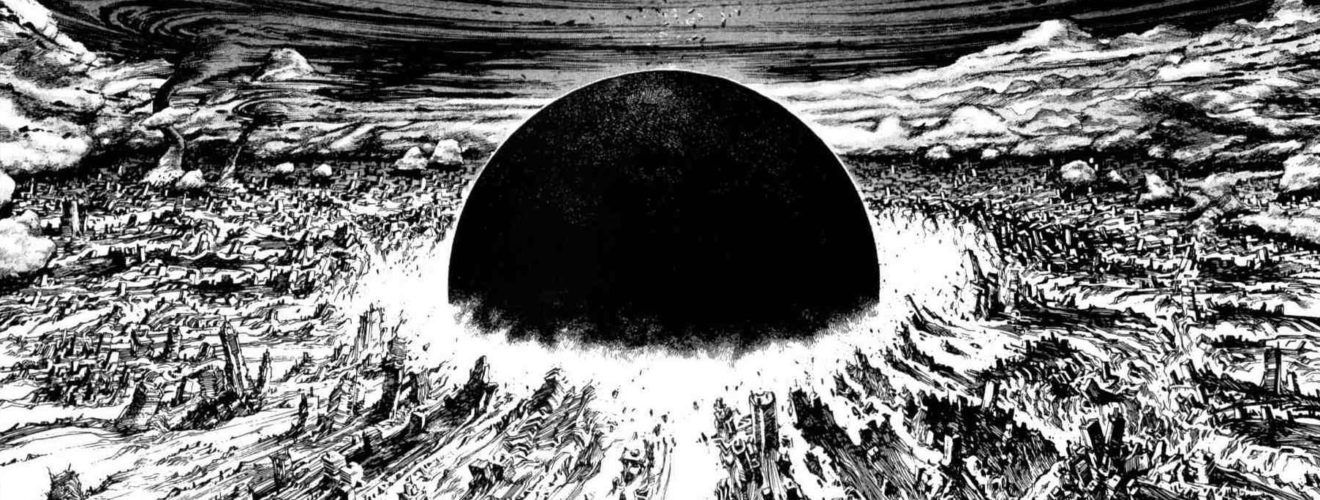
Apocalypse can feel like many different things, but at its heart "end of the world" fiction is about change. Whether it's a change in social structure, power, or status quo, the change that the apocalypse brings can be good for some and devastating for others. In The World Ends With You, the end of the world is presented not as a great sweeping piece of destruction but as a great personal change that alters the perspective and life of the protagonist. Change in perspective can also happen on a massive shift—while life has "returned to normal" in many social regards, most of us are still struggling with personal trauma born from years of world-altering public changes. Nearly half of Americans don't believe this "normal" will ever return.
In America, our lives are fully defined by acceptable delusions. Nearly 40 million Americans live below the poverty line, though there are many ways that success can be halted regardless of income bracket. Mounting bills, medical debt, job loss, and the uncertainty of the future mean that a significant portion of adults are nearer to homelessness than they are to becoming the next Bezos. America's mythology is built upon a dream of prosperity—the idea that with enough hard work, you can attain anything. Whether or not this is true for the mass populace, for many the idea of an apocalypse grants the possibility of significant change.
The Last of Us, Kentucky Route Zero, and NORCO herald different perspectives on what might happen next, and how much of our apocalypse is framed by our collective response to tragedies, shifts in power, and the oncoming new world.
The End of Normal
You know of The Last of Us by now. The "greatest story ever told" (no, not that one) in gaming has hopped genres and been subject to a recent full remake because of how deeply audiences vibe with the concept of a personalized apocalypse. The Last of Us is, aptly, not about the zombies infected but about the people at the center of its story. As with any good or memorable end-of-the-world tale, the actual circumstances aren't the portion of the narrative where the focus shifts. It's the relationship between Ellie and Joel that makes us want to continue, and all of the complexities that arise when you try and assign old-world moralism to a post-apocalyptic atmosphere.
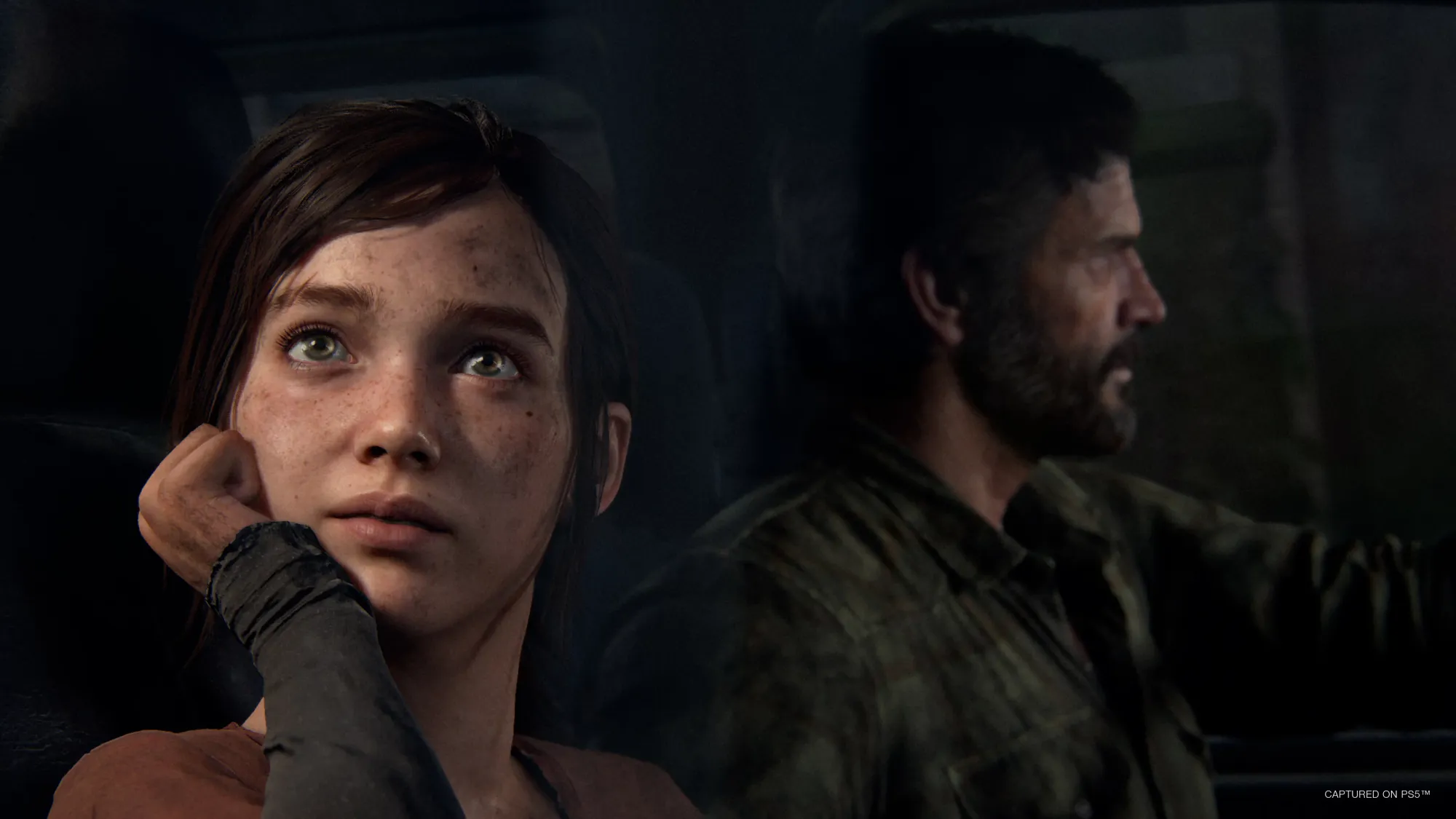
TLOU's narrative has sparked endless conversation and controversy in the years since its release because of a complex narrative perspective that borders on McCarthy and Kant. While humanity and emotion are at the core of the story, its perspective is cynical, where it leans on common trappings of apocalypse fiction and the spiral of humanity after the downfall of our status quo. Parts of both TLOU Part 1 and TLOU Part 2 field the idea that humanity's natural tendency is to return to a sense of normalcy, no matter what; we are shown this in Jackson, in the QZs, and even in pocket towns and communities that eventually fall. But in the true "mankind is the real evil" trope, the infected are considerably a lesser problem for what remains of the human race. FEDRA, the Fireflies, raiders, smugglers—the world is, from the perspective of the game, mostly constructed of those with violent tendencies who want to destroy and control. The survivors are those who can stomach the violence necessary to go on.
Kentucky Route Zero's deference to magic realism feels almost like a poetic opposition to The Last of Us' literal themes of gritty survival and vengeance. Set up in a nonlinear novel style, KRZ takes place in a nebulous post-post apocalypse where the American Dream has eroded but the country's controlling companies continue to destroy people's lives. By blending Southern Gothic themes with dream logic, KRZ is able to paint an end-of-the-world scenario that is overall less dire and less immediately violent than TLOU—but it bears a more brutal hopelessness and melancholy. KRZ casts the machine of industry as a sort of cosmic force; the organization called the Bureau of Reclaimed Spaces works as a sort of gentrifier of reality. Like TLOU, Kentucky Route Zero is mostly about people and how their lives are affected after such a profound change, but unlike TLOU those in KRZ have mostly moved on from the idea that the world can ever be "normal" again.
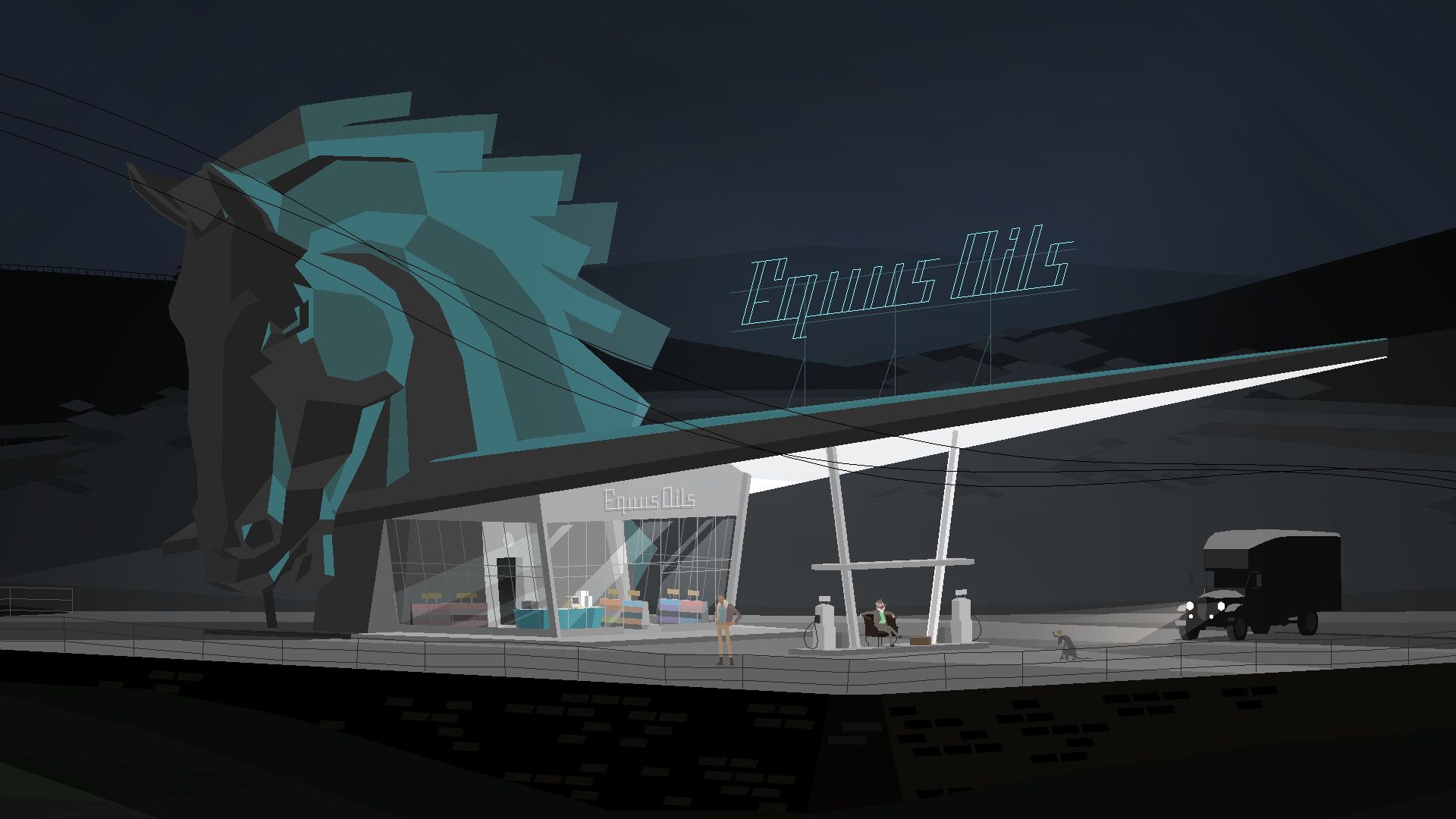
We Saved What We Could
NORCO and Kentucky Route Zero avoid certain tropes of the apocalypse by choice, instead showcasing worlds that are eerily familiar to our own. Where KRZ feels as though it's placed in a (not far off) post-post apocalypse, NORCO rests in the material present, expertly melding believable science fiction with the common end-of-the-world narratives such as evil organizations, cults, and malignant gods.
One of the most titanic and beloved pieces of apocalyptic fiction in video games has long been Final Fantasy VII. The game expertly sidesteps much of the setup required for the end of the world and jumps into the phase of brutal reality: in Midgard, class is violently and literally separated by physical location, with the slums beneath the plate and the metropolis above. Final Fantasy VII's heavy-handed metaphor of mako reactors and the Lifestream can be a stand-in for anything: the destruction of the Amazon rainforest, consumerism destroying the planet, or that just 100 global companies are responsible for 71% of the total emissions worldwide. When Barret tells you "The planet's dyin', Cloud!" it comes from a place of such obviousness as if to be unnoticed by those living through the final days of corporate malignance—their eco-terrorist group Avalanche acts out of desperation to save what little of the planet remains.
In the final chapter of Kentucky Route Zero, the game surprises with a second apocalyptic event. A devastating flood washes through and displaces an entire region, forcing dozens of characters to yet again pick up the pieces of their lives and attempt something new. Neighbor buries neighbor, friend mourns friend, and we watch as comrades work together to build a new community in the wake of such devastating loss. While KRZ is largely framed as a tragedy, it's difficult not to be moved by the many small lives that make up its greater narrative. As with many stories grounded in material realism, KRZ deals no righteous justice to its villains, nor does it grant its protagonist a hero's send-off. Instead, it focuses on the individual, interconnected lives of people and how they support one another when there is no other option. This humanist perspective drives a wedge into the idea that humans are naturally evil or inherently selfish—it sidesteps this common apocalyptic narrative by giving us a closing vignette in the mechanics of community.
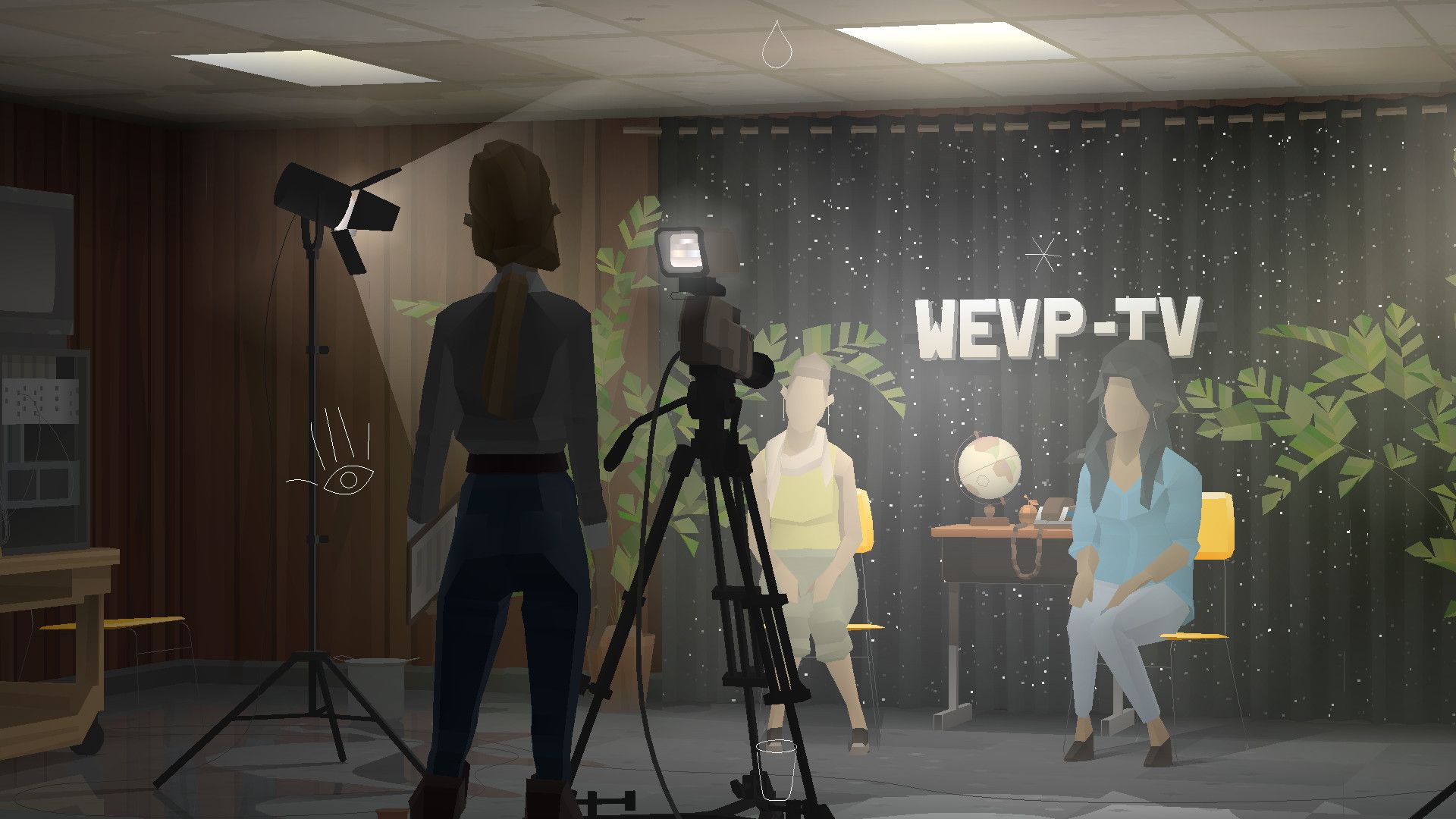
The TLOU show on HBO, surprisingly, winks at this type of narrative in a throwaway manner. In Episode 6, when Joel and Ellie reach Wyoming, they find a bustling city of people working together to reframe normalcy. They've decorated for Christmas, they're watching movies, and they have working showers. Maria, Tommy's wife, takes them through the ins and outs of their community and how every neighbor shares time and resources. Joel, immediately, says: "So, communism." When Tommy shoots down the idea, Maria responds: "This is a commune. We are communists."
The Texan brothers might be momentarily stymied, but the show does not waste time granting unnecessary arguments to the thoughtful exchange. Political ideologues no longer have merit after the end of the world, and a commune sans government is the best way to grant everyone a piece of the pie and rely on natural strengths in order to rebuild, foster, and grow. TLOU grants us a look at the opposite end of this idea as well—David's community is run by a self-centered religious cultist, and their dwindling materials are an unobscured dig at rebuilding via individualism versus rebuilding via the collective. Even when the apocalypse comes and goes, people's basic needs—food, shelter, medicine—remain, and all the following choices build and frame our new lives. While many fans take umbrage with Joel's fate in TLOU Part 2, we are repeatedly shown that his choices had nothing to do with community, and everything to do with hate and pain. Part 2 amends this in part with the inclusion of Dina, and shows that perhaps Joel and Ellie's flawed perspectives mired in violence and brutality are actually at odds with constructing a new and functioning world.
Present and Future Misery
NORCO offers us a unique look at what the end of the world might look like in a simultaneous pre-and-post apocalypse—something that hits very close to home. In our "return to normalcy" from COVID, we've left bodies in our wake. The CDC in America has reported that out of 103,801,821 total cases, there have been 1,121,512 deaths. People lost jobs, homes, and possessions. Many of us suffer from a sort of shared PTSD that has profoundly altered our realities by intangible means. "Surviving" the apocalypse means being changed by it, and COVID is only one pandemic currently ravaging America. Inflation, increased cost of living, and a dwindling job market are saddling an entire generation with impossible debt and dire prospects.
In NORCO, we are granted an unusual narrative that feels surprisingly familiar. A family saddled with insurmountable medical debt and divided by old wounds must do their best to live in a forgotten rural country torn apart by a billion-dollar industry. Kentucky Route Zero and NORCO share similar realities, but the world in NORCO feels salvageable even with its rampant corruption and decay. While NORCO is mostly a point-and-click adventure game, the mysteries at the core of its narrative ask that the player really consider meaning in a time of meaninglessness.
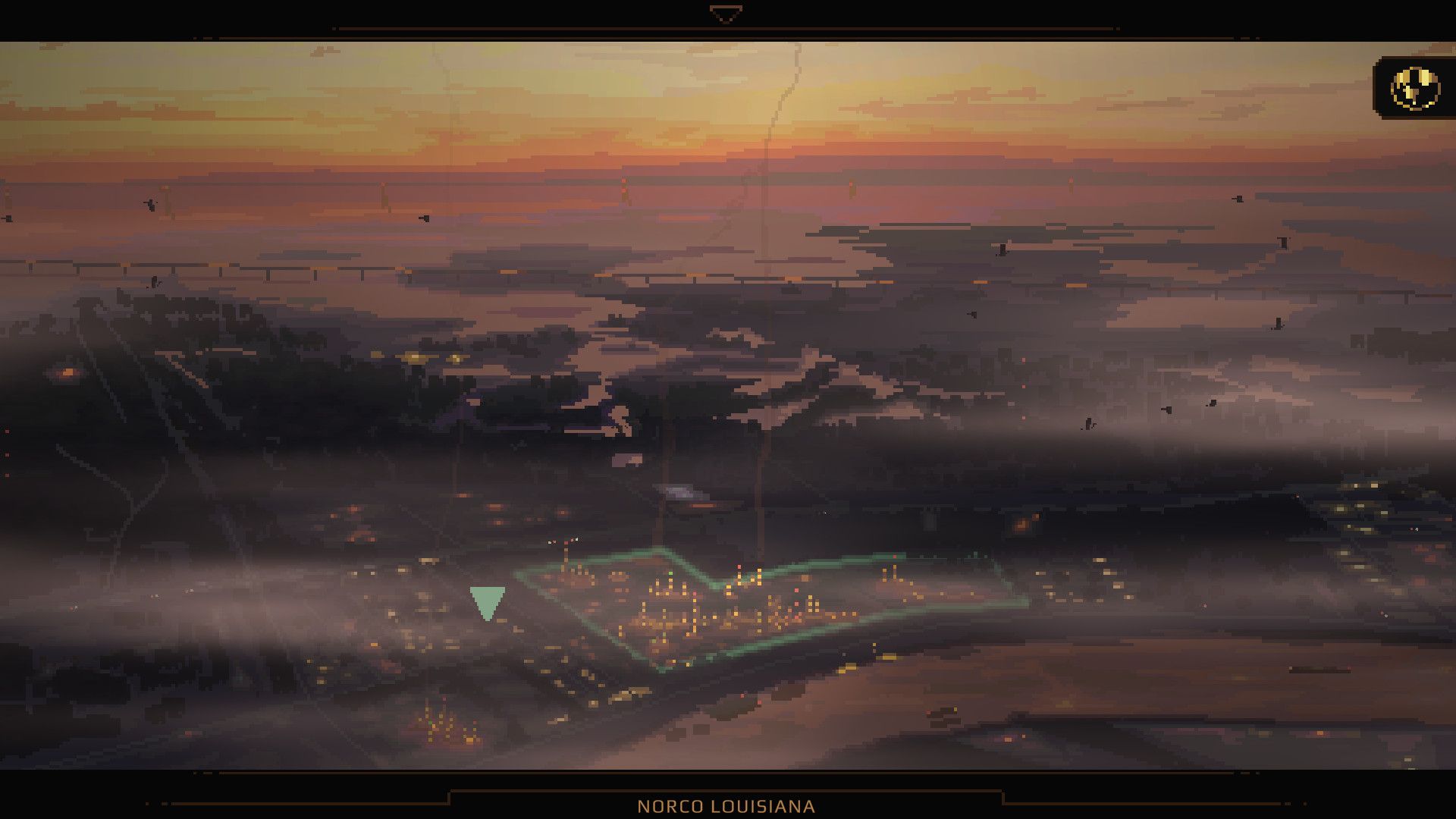
While NORCO's sci-fi Lousiana is sinking in the bayous and dying beneath the shadow-smoke of oil refineries, its bleakness paints the fundamental problems of our world through extremely human characters. There might not be any zombies to fight or pandemics to escape, which is why NORCO's apocalypse feels impossibly dire—it's the normalcy of its erosion that is frightening. There are no easy answers in NORCO; there is no path to dismantling capitalism or bringing down the nefarious company that's shredding Louisiana for its final resources. Within hopelessness, NORCO shows how even the most insignificant people refuse to give up.
It feels, as of the moment, that we are between catastrophes. Another pandemic is only a matter of time, and those of us who lived through it remember that both our governments and people reacted to it in less than stellar ways. The IPCC has repeatedly stated that emissions are at their highest in all of human history, and the decisions we make now will profoundly affect the planet—and humanity—moving forward. Liveability might not always be as dire as it is in The Last of Us, but we all deserve lives without suffering under the stagnant decay caused by the mega-corporations that rule us. Even if the next great apocalyptic event feels inescapable, it might be possible to build something new.
Alternate Realities
Science fiction has often felt prophetic. Sci-fi authors and futurists throughout history have cast moments before their time, from internet avatars to unmanageable AIs to destructive corporate monopolies. Video games exist at the intersection of the reflective and the interactive, granting us infinite perspectives into lives we will never live. The Last of Us, Kentucky Route Zero, NORCO, and other titles feature glimpses into what might and might not happen, opening up interpretive explorations into the future that can have didactic effects.
What is most unnerving about the continuing end times is how its imagined narratives always focus on change. Whether it's the end of capitalism, the end of America, or something even more grandiose, nothing lasts forever. Powers shift, people change, and communities grow and falter. At the intercept point of these three games is the human desire to continue toward the future, no matter what happens. It's a concept old as mythology itself—after the fulfillment of Ragnarok in Norse Mythology, Lif and Lifthrasir are the humans left standing to see a newly risen world. From 13 Sentinels to NieR, the pervasive need for humans to continue in the face of apocalypse is inspiring and overwhelming. While the onset of apocalyptic doom might feel inevitable, its differences are shaped by the human need to persevere.
There is something in the showcase of art in all three games—Ellie and Joel's guitar in Part 2, the many musical moments in KRZ, and the video games in NORCO—that defends the most vulnerable and important part of the human condition. Survival in any apocalypse doesn't mean much if we lose our ability to create. In the first six months of COVID, there was a sudden and robust return to hobbies, from baking sourdough bread to playing Animal Crossing. Maybe the most realistic end-of-the-world scenario is the one where we sit down together and sing songs.
